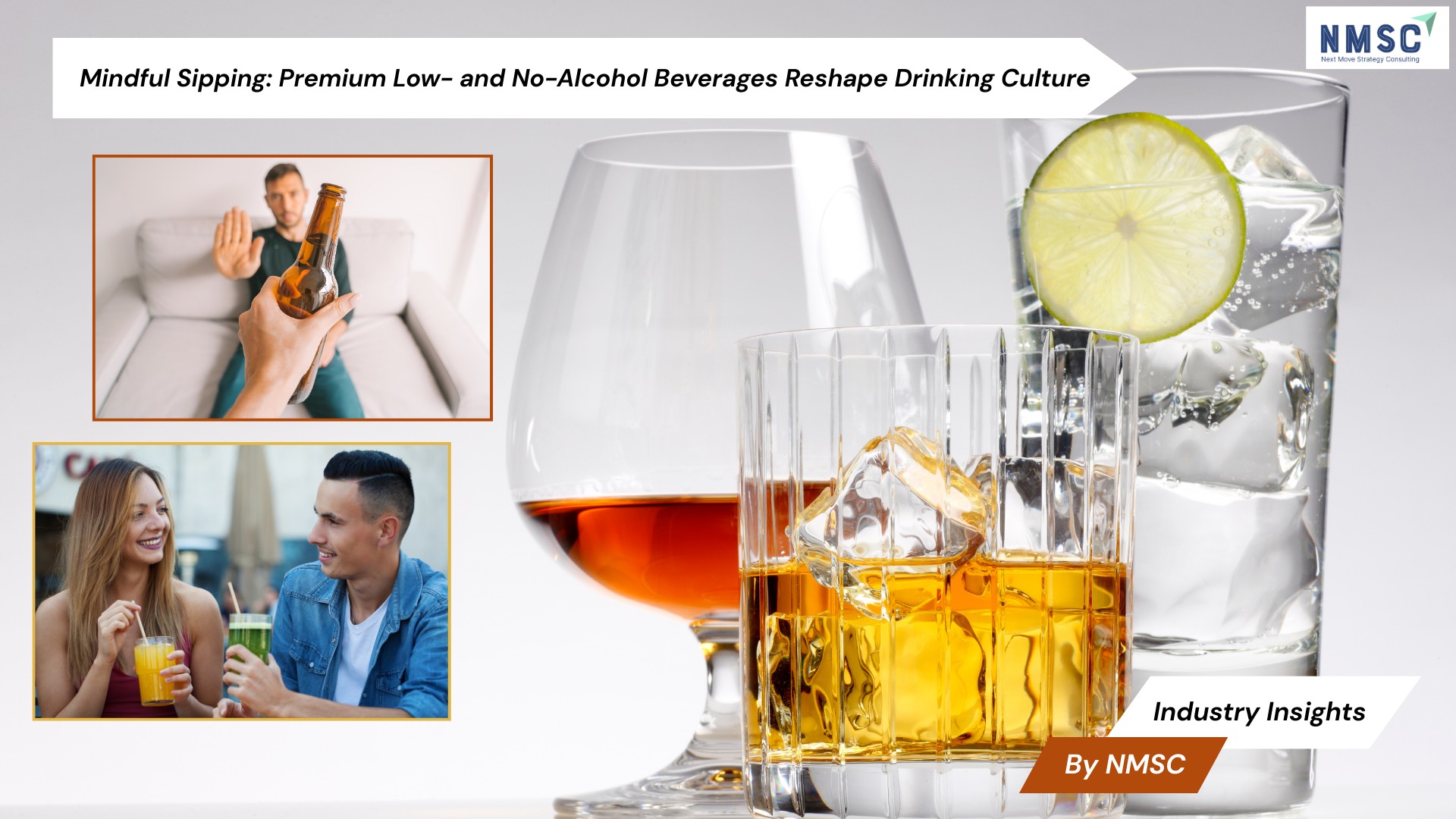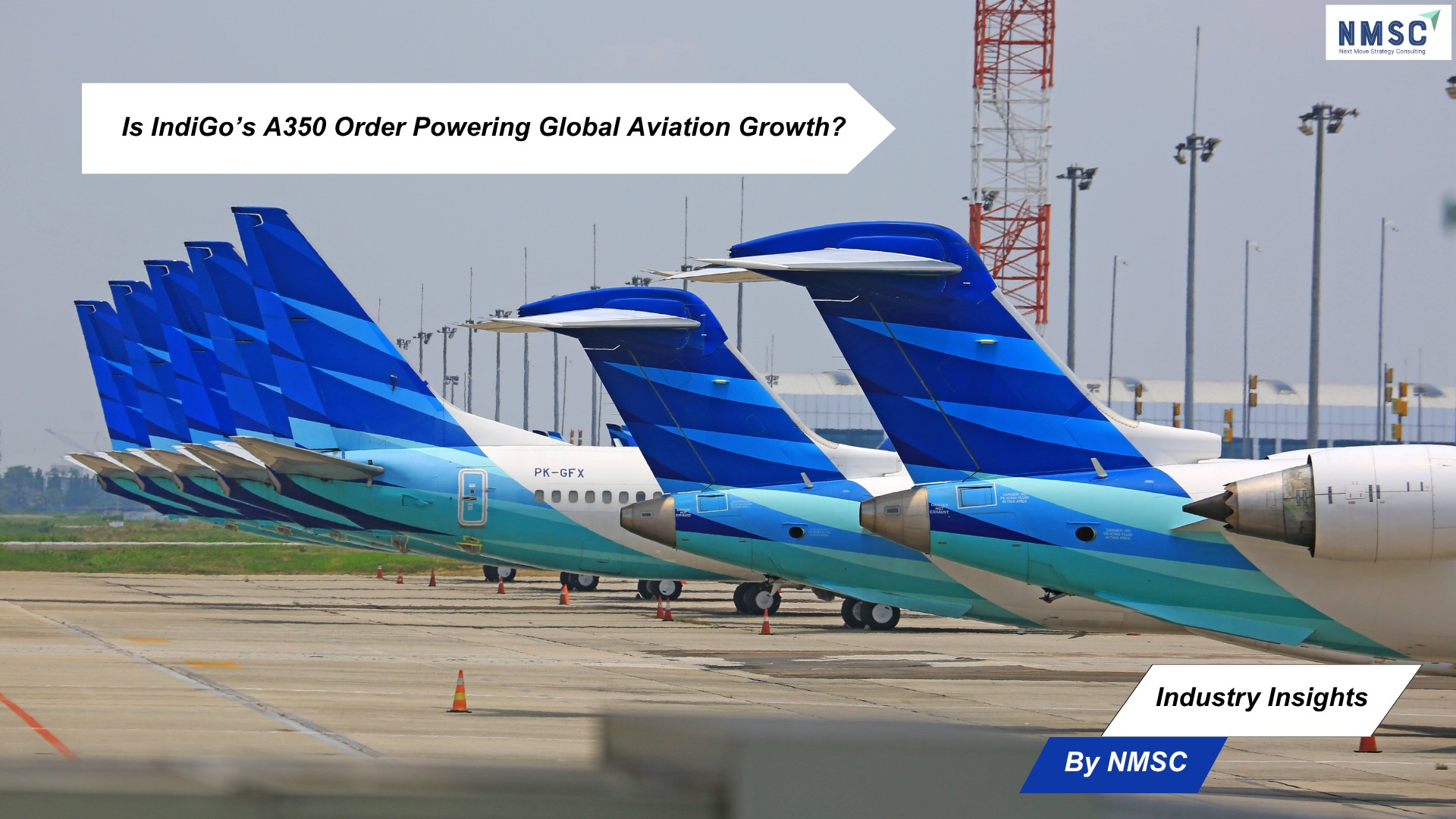Mindful Sipping: Premium Low- and No-Alcohol Beverages Reshape Drinking Culture
Published: 2025-07-23

As the global beverage landscape evolves, the low- and no-alcohol sector is experiencing a dynamic surge, driven by a growing moderation trend and a demand for premium, health-conscious alternatives. With discerning consumers seeking sophisticated flavors and functional benefits, brands are redefining mindful sipping.
A Shift Toward Mindful Indulgence
The rise of the “moderation era” has transformed the low- and no-alcohol beverage market, fueled by post-Covid-19 interest in holistic wellbeing and a departure from the heavy drinking culture of the 2000s. Consumers, particularly Gen Z and Millennials, are embracing mindful indulgence, with over half globally reducing alcohol consumption for healthier lifestyles, according to Jochen Kistner, director of category marketing for beverage EMEA at ADM. Terms like “sober curious” and practices such as “zebra striping” (alternating alcoholic and non-alcoholic drinks) reflect this cultural shift toward balanced drinking habits.
“The growth and innovation of the low- and no-alcohol category aligns with our Positive Drinking ambitions,” says Siobhan Hamilton, general manager of innovation for Europe and Africa at Diageo. “No-alcohol brands need to represent high quality and aspiration, not just an alternative for when you are unable to drink.”
Key Trends Driving Premiumisation
-
Sophisticated Flavor Profiles: Brands are using premium botanicals, exotic citrus, and bold flavors like zingy yuzu, tangelo, and spicy notes to create complex, authentic alternatives to traditional spirits and cocktails.
-
Functional Ingredients: Ingredients like lion’s mane, reishi mushrooms, and adaptogens such as ashwagandha and ginseng are incorporated for mood-boosting, stress-reducing, and energizing effects.
-
Premium RTD Formats: Ready-to-drink (RTD) cocktails and mocktails, such as Naked Life Spirits’ Italian Spritz, offer low- or no-alcohol options with natural ingredients and lower sugar content.
-
Innovative Production Techniques: Companies like Diageo develop complex alcohol-free liquids, such as Tanqueray 0.0%, by distilling botanicals in water to preserve quality and taste without alcohol.
-
Enhanced Sensory Experience: Sensation modulators like Sichuan pepper replicate the mouthfeel, burn, or tingling of alcoholic drinks, elevating the sipping experience.
A Growing Market with Premium Appeal
While low- and no-alcohol beverages represent just under 4% of the global alcohol market by 2027, according to IWSR projections, their growth signals significant consumer interest. Spirits giants like Diageo are embracing the trend, with acquisitions like Ritual Zero Proof and alcohol-free versions of Tanqueray, Gordon’s, and Captain Morgan. Brands like Naked Life Spirits and Everleaf are leading with premium offerings, such as canned cocktails and aperitifs inspired by natural biomes, delivering bold flavors like bitter orange, rhubarb, cinchona, gentian root and orange blossom, delivering a sweet yet bitter flavour reminiscent of the classic Italian aperitivo.
“People are drinking less, but happy to spend more on getting better quality drinks,” says Paul Mathew, founder of Everleaf. His brand’s Marine, Mountain, and Forest drinks use unique botanicals to evoke vibrant, nostalgic experiences, appealing to consumers seeking premium, story-driven products.
Functional Benefits Meet Consumer Needs
The integration of functional ingredients is a hallmark of this market’s evolution. Brands like Three Spirit and Little Saints incorporate lion’s mane, reishi, and adaptogens to deliver mood-boosting, stress-relieving, or energizing effects. “We’re in a feelings economy now,” says Tatiana Mercer of Three Spirit. “Consumers want drinks that reduce stress, improve sleep, and boost mood—without a horrendous hangover.”
Little Saints’ St Juniper gin alternative and RTD cocktails, including spicy margarita and paloma, combine botanical extracts with functional mushrooms for a viscous mouthfeel and enhanced social experience. “The primary driver for consumers is the inclusion of functional mushrooms, closely followed by taste,” says founder Megan Klein.
Industry Response and Future Outlook
As innovation accelerates, brands are focusing on authentic taste, sensory replication, and health-driven formulations. Synergy Flavours, for example, supports manufacturers with flavor ranges for whiskey, gin, tequila, and rum, ensuring an authentic spirit experience without alcohol.
Analysts see a bright future for this category, with younger demographics driving demand for inclusive, high-quality options. “The future is all about freedom and choice,” says Klein, emphasizing the growing desire for drinks that align with individual preferences and lifestyles.
Redefining the Art of Sipping
The premiumisation of low- and no-alcohol beverages marks a new era of mindful sipping, where quality, flavor, and functionality converge. From sophisticated RTD cocktails to functional spirits, this category is empowering consumers to enjoy inclusive, aspirational drinking experiences without compromise. As innovation continues to flourish, the low- and no-alcohol market is poised to become a cornerstone of the modern beverage industry.
Source: https://www.foodbev.com/news/mindful-sipping-inside-the-premiumisation-of-low-and-no-alcohol
Prepared by: Next Move Strategy Consulting
















Add Comment